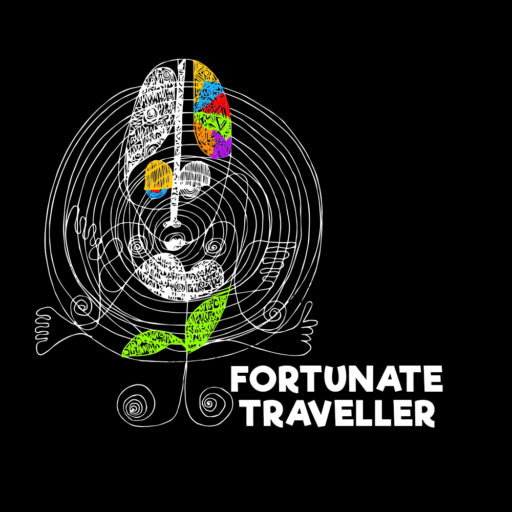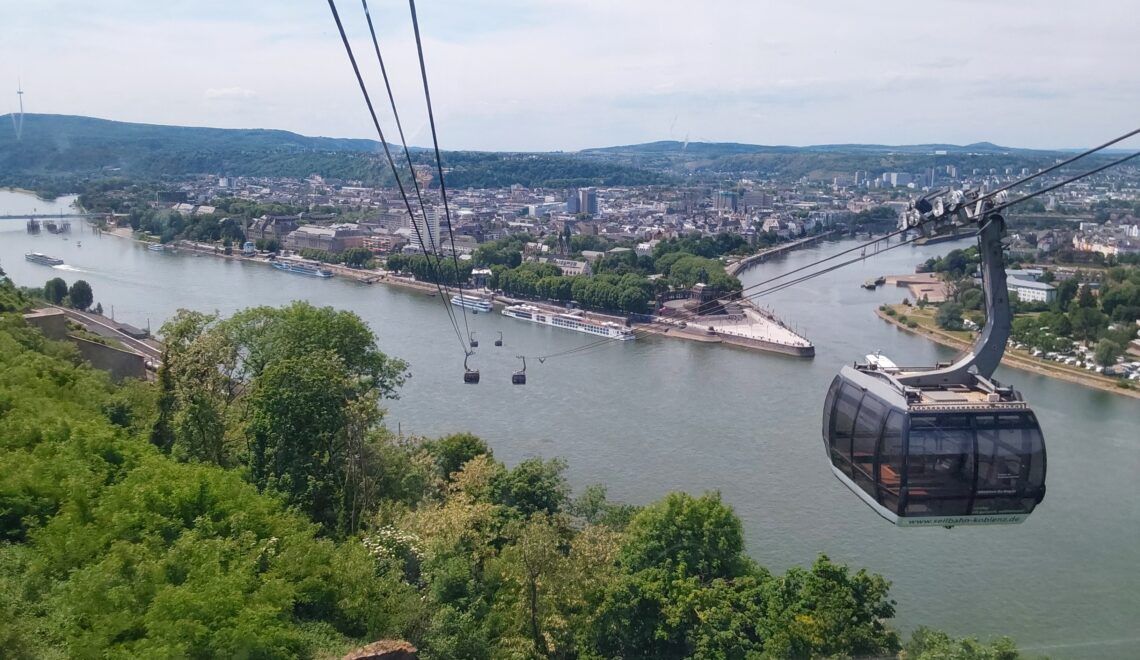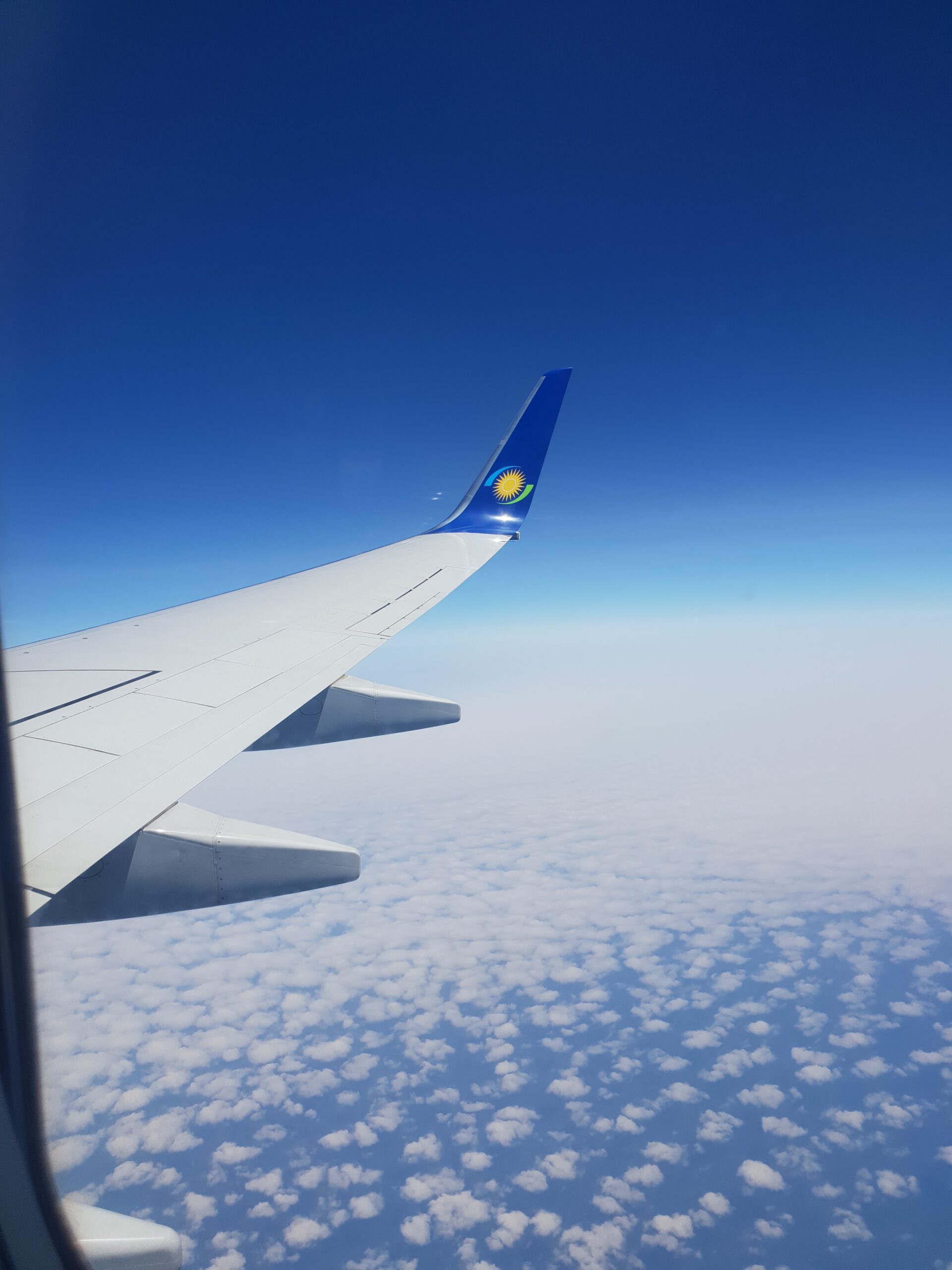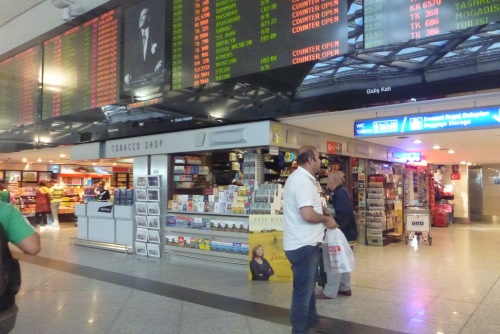
I
The first time I attempted speaking German, I was a middle teenager in Lagos, trying to impress Otunba, one of those egbon adugbo you looked up to without needing a reason. It was simple greetings: Guten Morgen and Guten Abend – the two times I usually saw him. I had looked up the greetings on Google Translate and practised the pronunciation because: (1) Otunba graduated in German from the Obafemi Awolowo University, Ile-Ife – just like my aunt’s now ex-husband, whom I’d briefly lived with in Ibadan; (2) he was kind to me. Whenever I needed something published, he ran it for me in his papers – even something as frivolous as the love poems of a virginal teenager. In retrospect, I’m glad I didn’t keep any newspaper clippings of all that earnest nonsense.
But one afternoon, when I saw Otunba at a bar near his house, he launched into a stream of German. Perhaps he was already inebriated and forgot that after those greetings, we always reverted to English or Yoruba. I simply raised up my hands in surrender, laughing. That was how far my pretence could stretch in the complex theatre of adulthood. He laughed too – that was how far he could also pretend along and indulge my faux, sudden language competence. Then he offered a new phrase: Guten Tag – good afternoon. Tag? I wondered. Morgen and Nacht made intuitive sense for morning and night. But Tag? That perplexed my simple logic.
And now, some seventeen years later, as my flight touched down in Berlin – an invited scholar of the Berliner Festspiele: Theatertreffen International Forum 2025, the most prestigious theatre festival in the German-speaking world – I found myself wondering how far the patchy groundwork of the two-month Duolingo crash course I’d just switched to, from Spanish, would take me.
Again, here was another instance of revisiting my 2018 argument with my friend, Innocent Ekejiuba, on which language was the closest to English between French and German. He argued for German, citing syntactic structures, that English only loaned a lot of French words into its vocabulary; while I agreed with the inkhornisms, I leaned towards French fully, citing the Norman conquest that displaced the ancient Germanic and Anglo-Saxon structure of old English making modern English less inflectional. I’d been to French-speaking countries before, but this was my first time on German-speaking soil, so let’s see how much that would change my perspective.
II
My arrival in Germany was not without a measure of perturbation. I guess travel anxiety has become something of a constant for me. Not because I doubt my place in the world nor the perils some have associated with travel. This is more about the quiet humiliations, the small trials of immigration, the bureaucratic poking that unsettles me. Like the last times I went to Dakar and Accra.
I flew to Berlin via Istanbul. When presented with flight options, I chose the route through Istanbul rather than Amsterdam, Paris or Dubai, partly in homage to my Nigerian playwriting mentors – Niran Okewole, fellow Fortunate Traveller, and Rotimi Babatunde, whose own journey to Berlin (for the Caine Prize literary engagement) once passed through that same hub. A sentimental itinerary, yeah, I admit. Even if that meant missing the opening day ceremony of International Forum 2025 because of the long layover at Istanbul. Besides, Turkish Airlines offered more baggage allowances, which was vital because my bestie, Rebecca, would be taking the trouble of bringing me some of my books in London to Berlin, which I would be travelling back with to Lagos.
At Berlin immigration, the cursor-question-mark appeared again, a shadow of doubt blinking above my head. I had hoped to breeze through like the Black lady in the line ahead. The officer glanced at her Nigerian passport and waved her on. When my turn came, I handed over my passport to the officer in the booth. He opened the visa page and his face creased into questions. ‘Ah, here we go again,’ I thought, because we were about to re-enact that Wole Soyinka’s poem, ‘Telephone Conversation’.
‘Please, can I see your invitation letter?’
I brought up the letter on my tablet complete with the Goethe-Institut logo, address and all. He took the tablet from me and scrutinised the letter. Zoomed and panned the screen. He asked for my return flight ticket. I showed him. Next, he asked for my insurance. I showed him. He asked where I would be staying. I showed him my hotel booking. The more proof and answers to his queries, the more determined he seemed to find some snag to detain me or turn me back. In my mind, I didn’t really care – I won’t even fight it becauseI I would not enter any country with my dignity bent. (Some European visa applications are more than humiliating enough already.) That small door I saw at Elmina Castle in Cape Coast, Ghana, marked ‘Door of No Return’ had triggered this defiance in me. During the slave trade, the way our ancestors were bent, folded up through that door to the waiting ship on the other side, as a mere commodity, was damning humiliating and I was not prepared to indulge any border official in any form of re-enactment nor involve any bureaucracy to forestall any turning back at any border. This was not going to be my loss anyway but his government’s. Because I didn’t pay for anything for this trip: the insurance, flight, hotel and even the visa application fee. If he wanted to waste taxpayer’s money on his bent stubborn perception, whatever hunch it was, then so be it.
‘Why would you be staying in Germany for two months?’ He had the look of a man unwilling to be outwitted by tidy paperwork.
Was it now sacrilegious, out of the ordinary, to go to Germany for that long? Or, rather, was it an anomaly for a young African to visit Germany for two months on a tourist visa? Because his economics cannot just afford it? Because he would not return at the end of his trip? I wouldn’t know. I wouldn’t know the reason(s) for this double-check. But, I obliged him again and explained my itinerary in Germany: first, the Theatertreffen International Forum in Berlin; then a short residency with Theater Koblenz; finally, a writing residency on the island of Sylt, generously awarded me by my dear friend, Indra. All with the invites and necessary papers which I showed him again on my tablet.
Some murmurs were now growing behind me on why processing my entry was taking longer.
In his last attempt, he asked to see the email where my invitation letter originated from. Right in my inbox. Fuck. As if I could have fabricated all these documents, as if the German embassy in Lagos had made some kind of mistake, as if Goethe-Institut didn’t know what they were doing, as if Indra had made some kind of mistake. Fuck. I opened my Gmail account and showed him my correspondence with Thomas at the Goethe-Institut, Munich. That did it for this doubting Thomas. Like some bureaucratic incantation, this last proof dissolved his suspicion, his face now relaxed into a smile. He handed me back my passport, apologised for delaying me, almost dipping his head, and welcomed me to Germany.
What welcome? By then, my enthusiasm – gathered from Lagos, buoyed through Istanbul – had been thoroughly drained.
I collected my luggage and braced myself for the next challenge: navigating the city with my toddler-level German. I had been advised to purchase a Deutschland-Ticket ahead of my arrival, as it was valid for travel across the whole of Germany and always on demand. However, back in Nigeria, I couldn’t download the app due to geolocking restrictions. My friend, Rebecca, had helped me secure the ticket subscription instead. I had hoped to download the app upon landing in Berlin but, alas, when I connected to the airport Wi-Fi, it was still the same thing. So, I called Isa from Goethe-Institut Munich. Her sunlit face, framed by what I would later recognise as the Uferstudios courtyard, filled my screen on the third ring. She was puzzled about the app issue as well. She advised me to get my purchase receipt ready anyway just in case of a train inspection. Then she gave me the directions to my hotel and a rundown of the day’s plan with my other colleagues of the International Forum. She promised to be at the hotel by the time I arrived.
As simple as it might seem to her, it was almost a total chaos for me. Finding the right platform for the train to Tiergarten was a walk through the maze, burdened with two pieces of luggage up and down escalators and staircases. I think I must have looked like that content creator, joe_onthestreet, in his depiction of the chaos of Berlin Hauptbahnhof.
I eventually made it to Tiergarten. But once on the street, without Wi-Fi or mobile data, I was again at a loss. The directions I’d memorised evaporated in my brain. Thankfully, while standing at a pedestrian crossing waiting for the red light to turn green, I noticed a Black woman beside me. I approached her in English. She responded kindly. It turned out she was a fellow Nigerian and we immediately switched to Pidgin English. She let me use her phone to navigate. The hotel, in fact, was just around the corner ahead of me.
She assumed I was a student when she asked if I was returning for a semester or was just starting a school program. Now I see. It’s uncommon to see young African tourists like me in Europe, and that explained why the young lady ahead of me was quickly waved on – she must be a student.
At the hotel, Isa was already there waiting as she promised. She greeted me warmly, helped with my check-in, and handed me my per diem. I showered, freshened up, all the while patiently waiting for me at the lobby. She escorted me to Haus der Berliner Festspiele, where I met my other Forum participants. They crowded around me because I was the last participant to arrive and had missed the opening day of the program specifically for introductory rituals, keen to know about my journey. Momentarily, I felt like a superstar for their genuine interest and smile beaming at me from all angles. I told them about my wahala at immigration to which they all laughed and supported my critical appraisal of it. Sarah especially sided with my point of view and was as well critical of the policing of human movements. Altogether, I felt safe and seen among these beautiful people and I was convinced it was going to be a very beautiful ride with them.
Later, in the garden, Sima, the co-facilitator of the Forum, called my name, with some kind of familiarity as if we had been friends all along, and pulled me into a tender hug. It felt like Germania herself embracing me. That, without any question being asked, was a real welcome. A proper, proper willkommen to Germany.
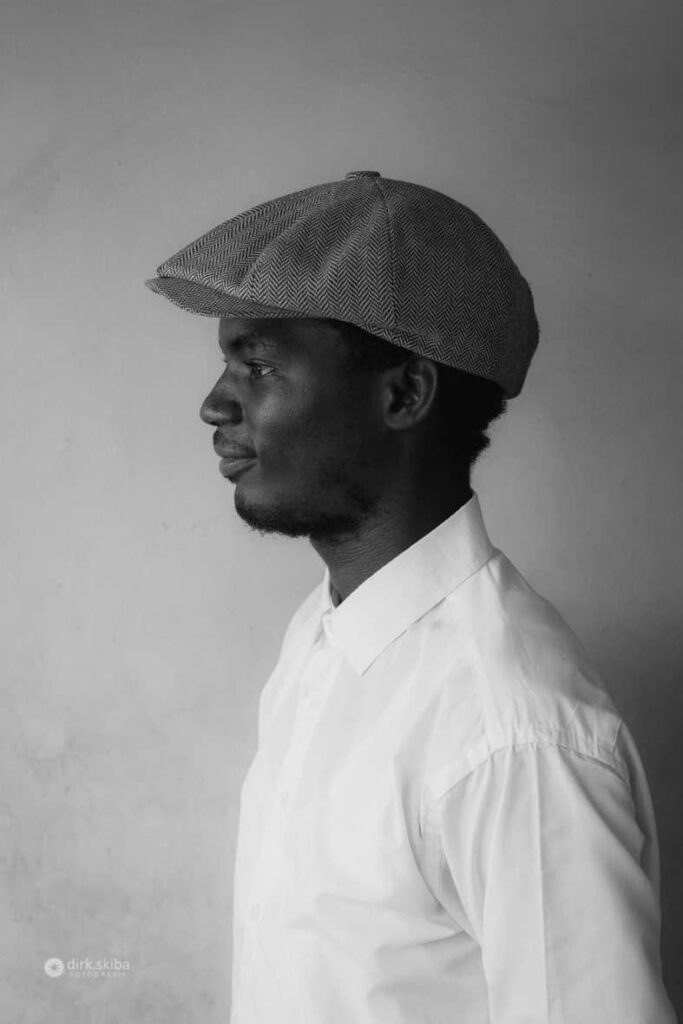
Tọ́pẹ́-ẸniỌbańkẹ́ Adégòkè is a traveller, literary critic and writer from Ibadan, Nigeria. He is the co-publisher of Fortunate Traveller, a travel journal. His chapbook of travels across Africa, Transacting Stories: Markets, People and Places, has been exhibited at the 2019 AfriCologne Festival, Germany and the 12th Bamako Encounters – African Biennale of Photography, Mali. @LiteraryGansta is his alter ego on Twitter.
